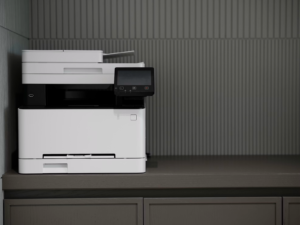Medical Emergencies and Their Effect on Savings

Financial planning often focuses on long-term goals like retirement, buying a home, or investing for future security. However, unexpected life events—particularly medical emergencies—can derail even the most carefully designed financial strategy. These emergencies not only bring emotional stress but also create significant financial strain, quickly draining savings and impacting overall net worth.
The Financial Shock of Unexpected Healthcare Costs
A sudden illness, accident, or surgery can generate expenses that far exceed a family’s budget. While some may have health insurance, it rarely covers every cost. Out-of-pocket expenses like diagnostic tests, prescription drugs, rehabilitation, or follow-up treatments accumulate quickly.
For individuals without sufficient coverage, these costs often come directly from savings. As a result, funds intended for investments, education, or retirement may be diverted to immediate medical needs. According to resources like Cashworthly, this highlights the importance of building emergency funds as a buffer against unexpected financial shocks.
The Ripple Effect on Savings and Investments
When savings are drained for healthcare, the impact goes beyond the immediate expenses. People may pause or withdraw from investments to cover bills, which slows down long-term wealth growth. Some may even resort to selling assets at unfavorable times, missing out on potential future gains.
In addition, recurring medical conditions can lead to ongoing expenses, creating a cycle where individuals find it difficult to rebuild their financial reserves. Using platforms like Netlyworth helps track how emergencies affect overall financial standing, offering clarity and motivation for recovery planning.
Debt Accumulation After Emergencies
For many, savings are not enough to handle large medical expenses. In such cases, borrowing becomes the only option. Credit cards, personal loans, or medical financing plans can quickly pile up, adding interest costs that further strain finances.
This debt not only reduces monthly cash flow but also limits future opportunities for investment and growth. A single medical emergency can set back years of financial progress if not managed carefully.
Emotional Stress and Financial Decisions
Medical crises don’t just affect physical health; they also influence mental and emotional well-being. Under stress, people may make hasty financial choices—such as liquidating investments too soon or borrowing at high interest rates. These decisions may solve short-term problems but weaken long-term net worth.
Maintaining clarity in such situations is challenging, which is why having pre-planned financial safeguards, like insurance and emergency funds, is crucial.
The Importance of Preparedness
While no one can predict a medical emergency, preparation significantly reduces its financial impact. Key strategies include:
- Building an Emergency Fund: Keeping three to six months’ worth of living expenses aside ensures that savings aren’t completely wiped out.
- Health and Life Insurance: Adequate coverage prevents out-of-pocket costs from becoming overwhelming.
- Diversifying Assets: Keeping savings in liquid and accessible forms allows for easier handling of sudden expenses.
- Regular Tracking: Tools such as Netlyworth provide insights into whether financial resources are well-balanced for emergencies.
Preparedness transforms a potentially devastating financial event into a manageable setback.
Conclusion
Medical emergencies remind us that life is unpredictable, and financial security is about more than just growing wealth—it’s also about protecting it. Without adequate planning, a single hospital visit can consume savings, increase debt, and reduce long-term financial opportunities.
By building strong emergency funds, investing in adequate insurance, and keeping a close watch on net worth through resources like Cashworthly and Netlyworth, individuals can safeguard themselves against the dual burden of health and financial stress.
Ultimately, protecting savings from medical emergencies ensures that wealth-building efforts remain on track, even when life takes an unexpected turn.





